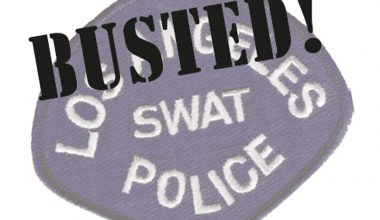WHEN an officer is off-duty, he should be circumspect regarding when he does or does not take action.
Most police officers come into this line of work with a sense of civic duty. In other words, they wish to make the world safer for all and generally they don’t like bad guys or the actions bad guys sometimes take. This attitude is what makes for good cops. But when you’re off-duty, you usually aren’t wearing body armor and don’t have communications, back-up, air assets, a rifle, shotgun or partner. You are essentially on your own.
There is an even more salient point to be made here that many are unaware of. You are not invoking a blanket of immunity from criminal prosecution or civil liability when either acting or identifying yourself as a police officer in an off-duty status.
Through the years, I have worked on several cases concerning officers who become involved for one reason or another in an off-duty capacity and ultimately applied force to resolve a situation.
Any department can review a case and determine whether or not you were acting in an official capacity. In short, whether they decide to back you or not is entirely their call. Many police officers are somewhat oblivious to this fact. Identifying yourself as a police officer does not place you in an official “on-duty” status. Nor does invoking police officer status automatically grant legitimacy to your actions. Actions taken are either reasonable or unreasonable. As with all cases, each is adjudicated on the merits specific to that particular case.
Where this fact may come into play might be the following scenario:
An officer observes highly suspicious activity. He follows and attempts, or does not attempt, to notify the appropriate agencies as he continues to observe a possible suspect. At some point, a confrontation occurs. It evolves from a merely observational action to a confrontational action and force is applied.
Should the department determine that the initial closure and confrontational aspects of the case on behalf of the officer were unreasonable (even though the force application was ultimately deemed reasonable), they might distance themselves from the officer altogether. All legal costs and time would then be the responsibility of the individual officer himself.
An officer’s legitimate intent will be determined by the investigating entities from the perspective of a reasonable officer under similar circumstances. Where you might determine that a course of action is legitimate, those above you might not and, as Shakespeare might say, “Therein lies the rub.”
On one particular case I worked, a Federal officer was suspended from his agency throughout the entire legal procedure. For an extremely lengthy period of time (well over a year), his future and fate with the agency rested on the outcome of the criminal and civil trials. Ultimately we prevailed and he was restored to full duty status.
The stress he underwent throughout this process was clearly evident to me as the case proceeded. His homeowners insurance bore the costs up to a point, with the balance derived from his own funds. Very costly indeed.
There is a fine line between being proactive and overly aggressive. Unless the nature of the offense or actions of the offending parties is of such a grievous nature that intercession is of utmost necessity due to the imminence of the event (e.g., life threatening in nature), I would simply attempt to be a reliable witness. This is a good policy to adhere to.
Bad guys can be infuriating, to say the least. We have a few out here in Los Angeles. Not everyone has respect for the law or for those who enforce it. Once you identify yourself, the cat is out of the bag.
Since I have had many bad guys who showed me complete disrespect when in uniform and with a partner, I would expect even less when not in uniform and on my own. Sometimes it is best to remain the observant “grey man.”
Think before you act, and understand the possible consequences.



